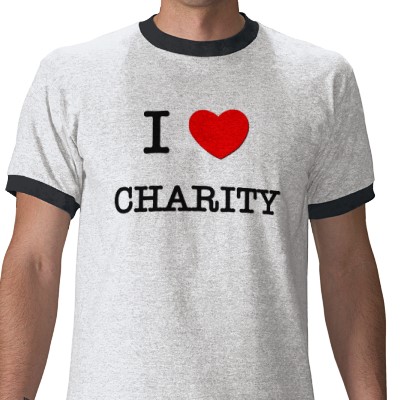This post has not been edited by the GamesBeat staff. Opinions by GamesBeat community writers do not necessarily reflect those of the staff.
Editor's Note: Frank again reminds us that video games can have a positive influence on the world. I agree with him, and I hope he continues this series. – Jay
 If you asked most people to write down their opinions of the average gamer, the word charitable would probably not be on that list. However, this perception may soon change. Video-game charities pop up every day, and the amount of money they donate is far from insignificant.
If you asked most people to write down their opinions of the average gamer, the word charitable would probably not be on that list. However, this perception may soon change. Video-game charities pop up every day, and the amount of money they donate is far from insignificant.
For an idea of how widespread video-game charities are becoming, all you need to do is head towards Google. A search for the phrase 'video game charity' currently shows 19,100,000 results. While many of these hits point to articles such as this one, you don't need to look much further than this very site to see solid evidence that game charities have become pervasive.
After the recent earthquake in Haiti, the gaming world took notice. The staff of Bitmob.com did not just sit on the sidelines. They sprang into action and hosted a night of multiplayer Halo 3 action that helped raise money for that struggling nation.
Some video-game charities have been operating for a while. The Penny Arcade founded Child's Play organization is probably the most well known video game charity in existence. The Child's Play website boasts that they have had over five million dollars worth of games, cash, and toys donated to help sick children since their inception in 2003. $1,780,870.40 of that came from 2009 alone!
Not to be outdone, the big three publishers — Nintendo, Sony and Microsoft — all have charitable organizations or outreach programs as well. The ESA (Entertainment Software Association) has also been hosting their Nite to Unite dinners which have raised over ten million dollars for a variety of charitable organizations.
Video game developers have also taken up the banner of charity. Last year, Bioware teamed up with Facebook for the game Gift of the Yeti, and they donated a penny to the Child's Play organization every time someone played the game. Blizzard helped raise a million dollars for the Make-A-Wish Foundation by offering up a virtual pet for sale, and the publisher OneBigGame was recently set-up to allow developers to publish not-for-profit games which benefit a variety of organizations like Make-A-Wish.
You don't have to be one of the big three or part of a major organization to be a charitable gamer either. Just look at these videos from Youtube.com for more proof of how video games are being used to further charities in both a personal and an organized fashion.
[embed:http://www.youtube.com/watch?v=sSG-YOHRZLI ]
[embed:http://www.youtube.com/watch?v=FpQ4M-wnnNY ]
[embed:http://www.youtube.com/watch?v=QE5I3eIlRuA ]
[embed:http://www.youtube.com/watch?v=U2IaeScWITM ]
[embed:http://www.youtube.com/watch?v=-NOugf_jdKQ ]
Truly, you do not have to look far to find proof that gamers are not just content to sit on their couch eating Cheetos and jacking cars in GTA. The stereotypical image of a gamer might not be of a person who cares deeply about their fellow man. However, if gamers are good at one thing it is betraying the stereotypes that people like to place on them. While you will encounter about a thousand Xbox Live racists and gaming site trolls for every gamer who has ever donated to a video-game charity, the fact that they exist at all proves that gamers should not be identified solely by the stereotypes attached to them.
To find out more about how video games are making the world a better place, read part one, Can Video Games Make the World a Better Place? (Re-Mission and Folding@home) and Can Video Games Make the World a Better Place? Part 2: Creativity. You can find all entries in this series here.
